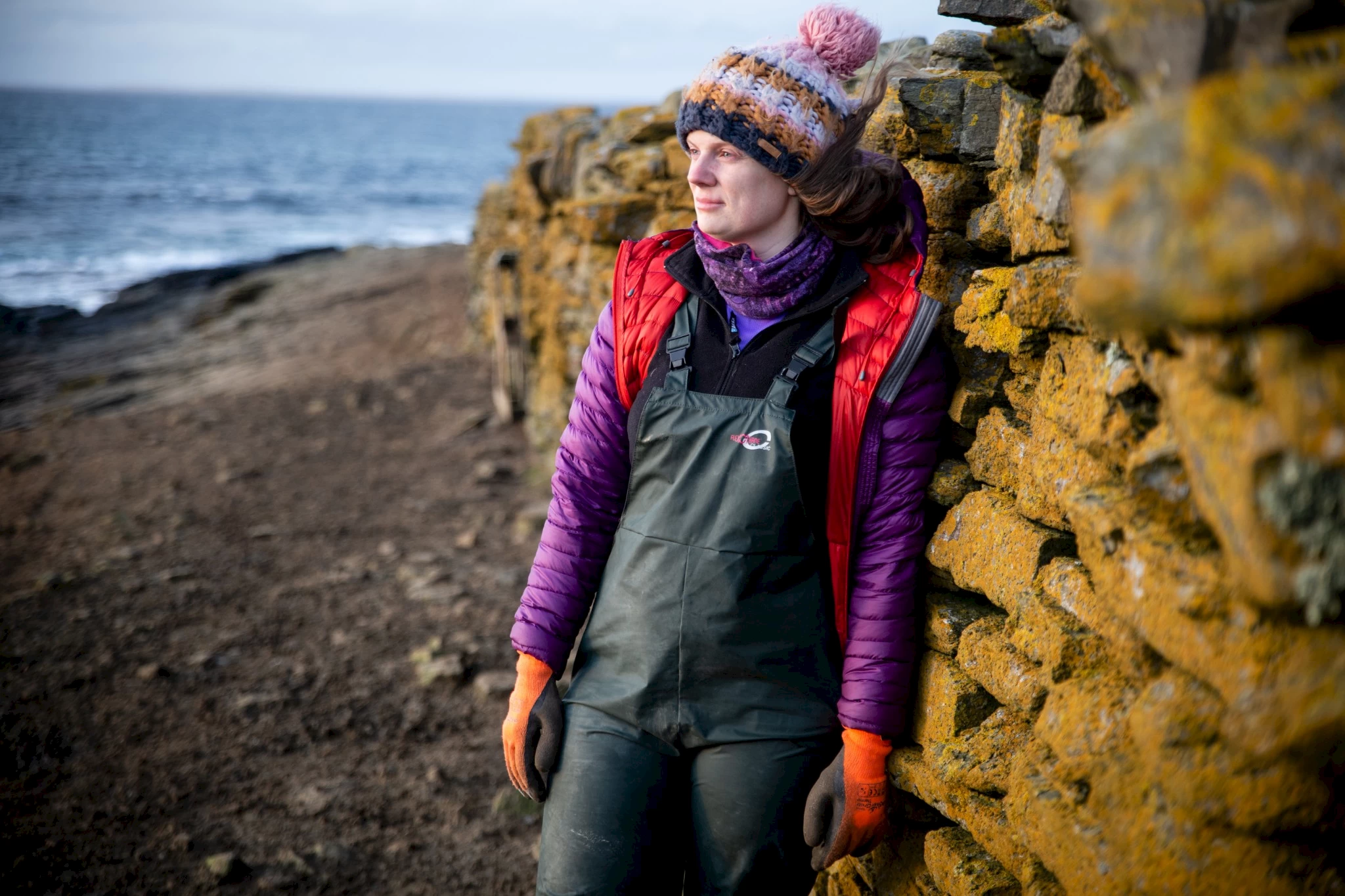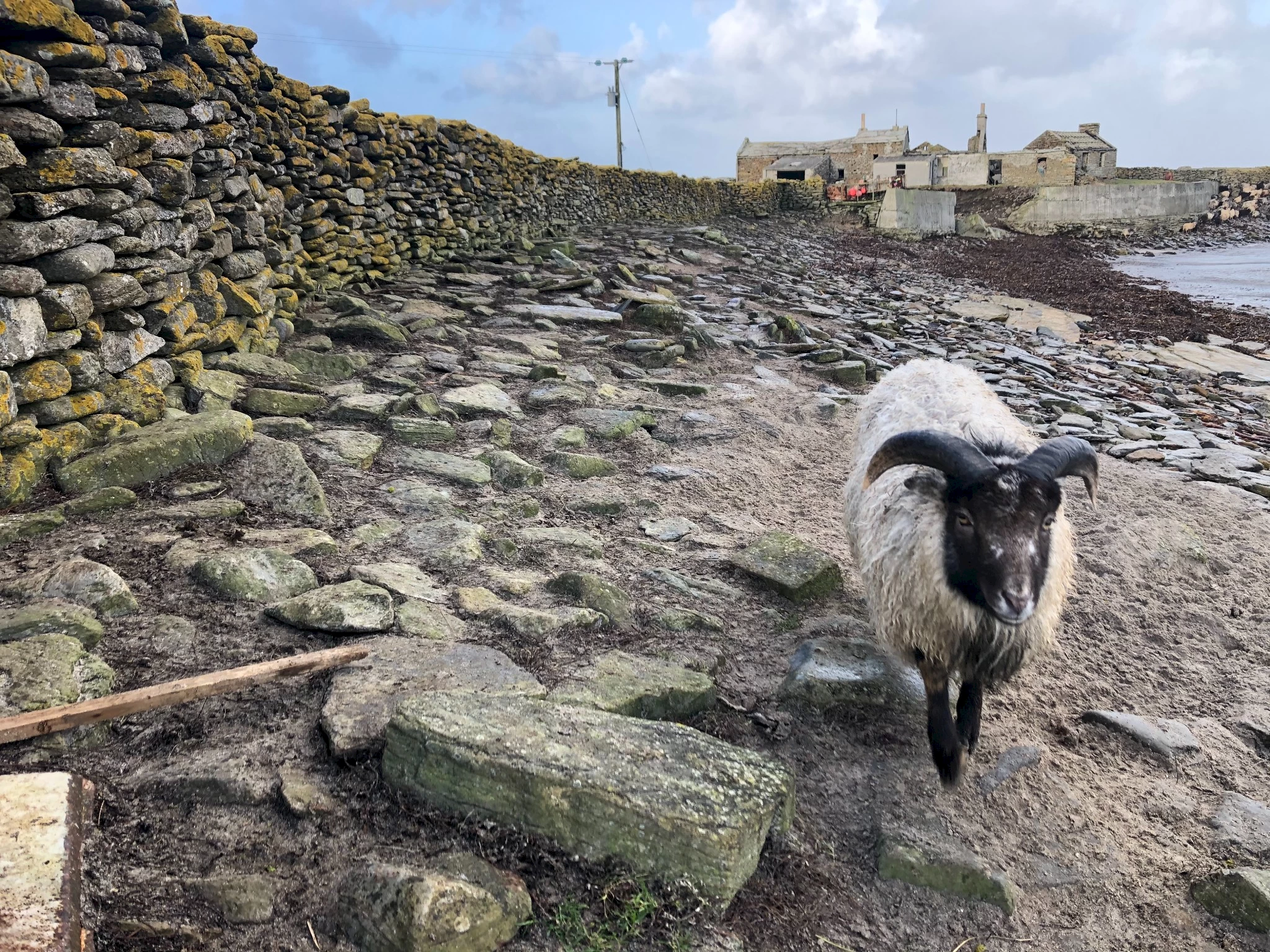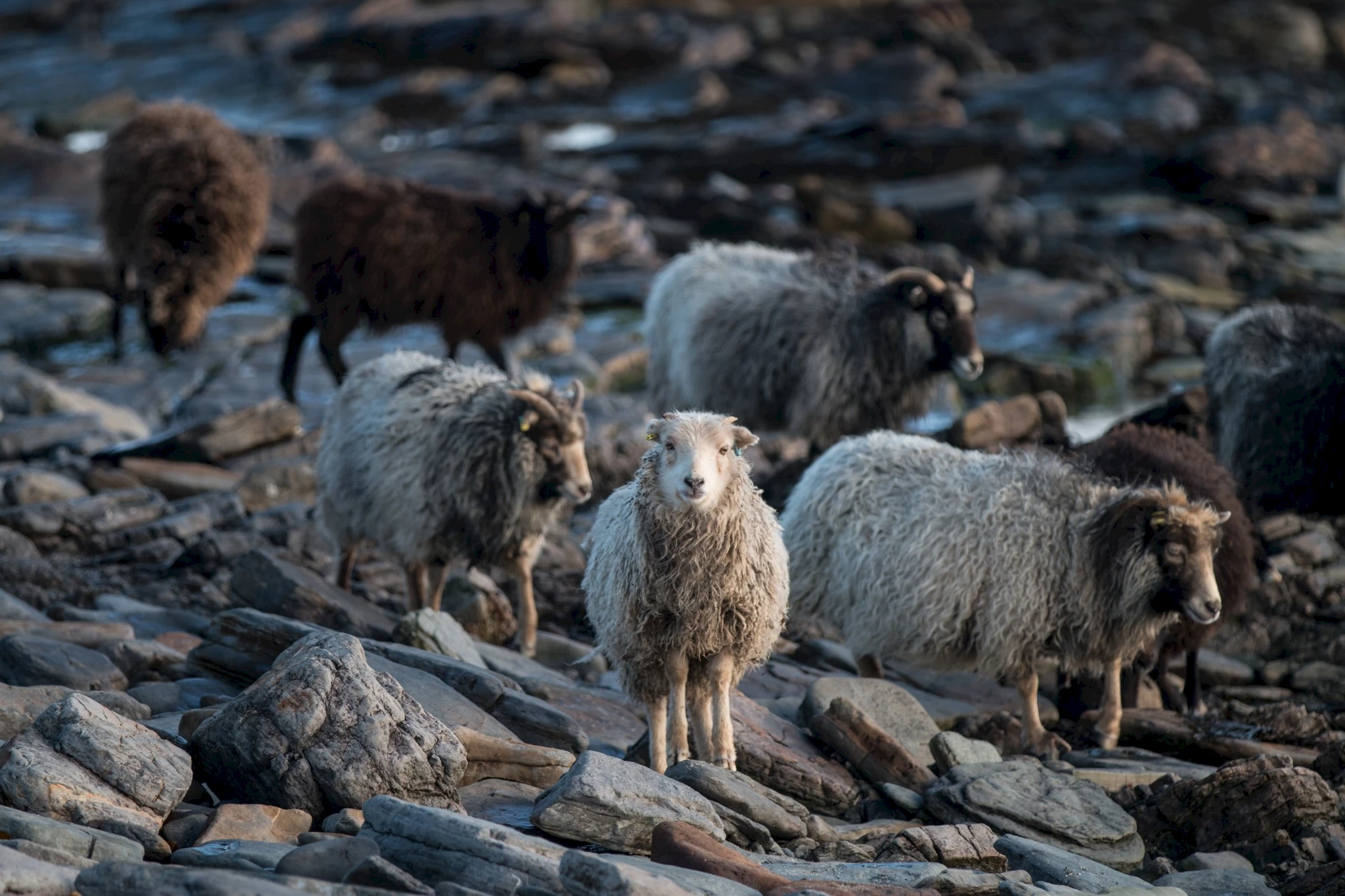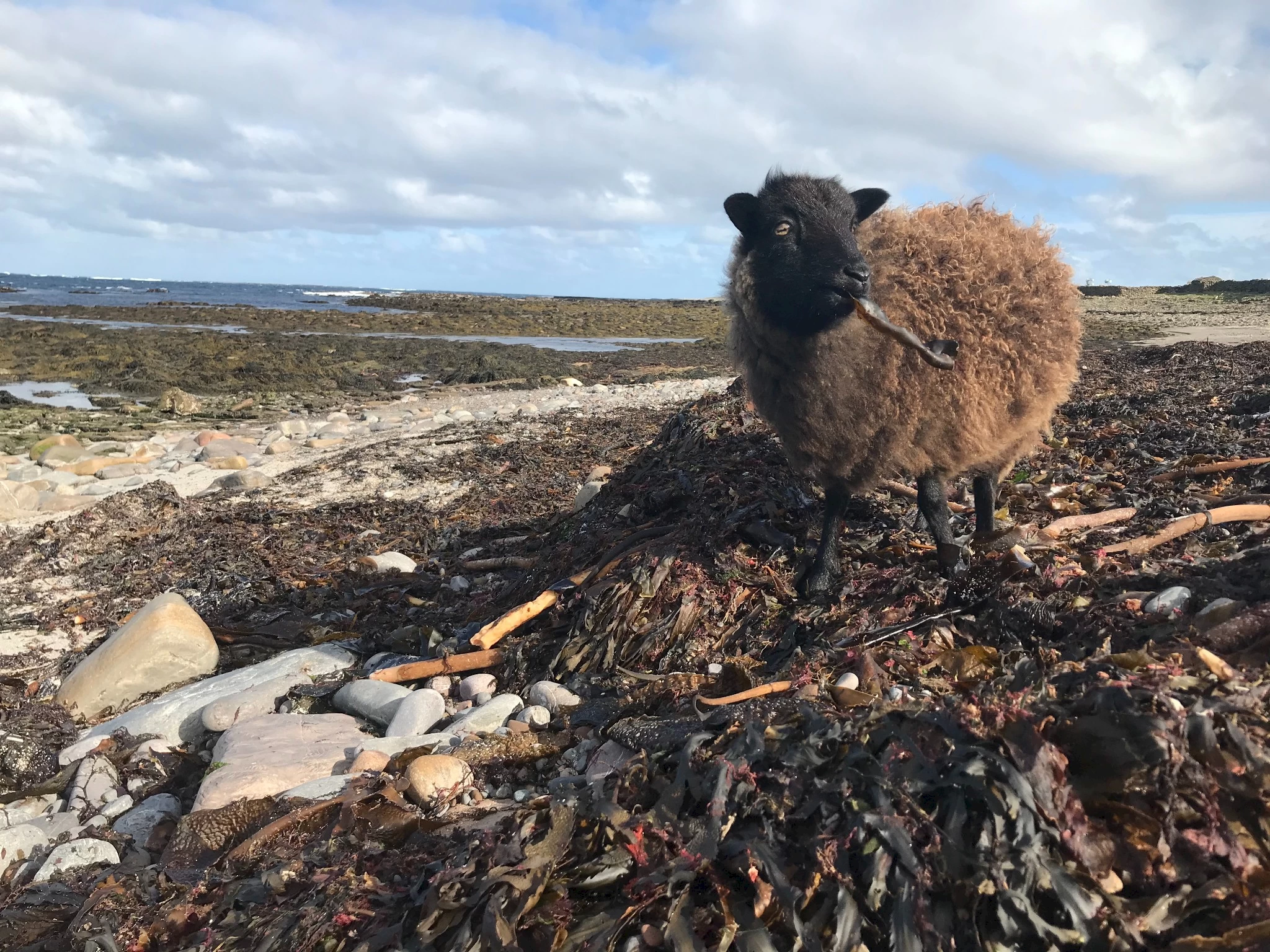Finding the perfect Christmas present can be a real challenge. And, with so much choice these days, picking out something truly special has become harder and harder.
Luckily, residents in Orkney’s most northerly community have come up with an ideal solution. How would you like to adopt a seaweed-eating sheep this Christmas?
Obviously, you won’t have a new four-legged friend to feed over the holidays, but you will be able to keep a close connection with your adopted animal.
The idea comes from North Ronaldsay’s Sheep Dyke Warden, Siân Tarrant. She has spent the past year repairing the stone wall that encircles the island and keeps the ancient rare breed of sheep on the shoreline, feeding on their traditional diet of seaweed.

“Much of the interest and management of the North Ronaldsay sheep is focused on their uniquely flavoured meat,” says Siân. “But we ended up bottle-feeding two lambs during lockdown and basically fell in love with them, so we decided they would become the first members of our ‘forever flock’.”
‘They’ are Cocoa and Pancakes, the two North Ronaldsay lambs raised by Siân and her partner Olly during 2020. Sián says Cocoa is an ‘escape artist’ who is addicted to raisins. Pancakes, meanwhile, is a ram lamb and is ‘big and boisterous', but also a ‘cuddle fiend’.

Adopting one of these characters will help grow North Ronaldsay’s first forever flock, as well as supporting the Rare Breeds Survival Trust, who work to conserve the UK’s native breeds, including North Ronaldsay’s unique sheep. There are plenty of other benefits, too.
“As part of your adoption, you’ll get a special woolly gift made from North Ronaldsay wool, a photo of your chosen sheep, an adoption certificate and a fact sheet on the island’s native sheep,” says Siân. “The adoptions last for a year and we’ll send you quarterly updates from your sheep, including plenty of videos so you can see them on the shoreline!”

There’s also a tracking option, taking advantage of a GPS tag attached to both Cocoa and Pancakes, so you’ll be able to find out where the intrepid duo have been exploring. “It’s fascinating being able to see what they’re up to, where they prefer to feed and where they get shelter,” says Siân. “Cocoa is the bigger explorer, presumably in search of the finest seaweed!”
As well as an interesting insight into life on the island shore, Siân hopes the data gathered from the trackers as part of her personal project could help examine the behavioural habits of the sheep, in response to variables including the weather, wind direction and tide heights.
“It has been invaluable for keeping them safe too – bottle-fed lambs have lower survival rates because they don’t have the survival knowledge passed down from their mothers,” says Siân. “We used to have to spend an hour looking for them in the dark during stormy weather, but now we know exactly where they are, and they’re always happy to see us and follow us for a change in diet and some shelter.”
North Ronaldsay’s sheep are a vital part of island’s economy, helping support the small population of around 60. The mutton is a prized delicacy and is exported around the world. Wool from the sheep is processed locally and is much sought after.

The 2000-strong flock spends the bulk of its time of the shoreline, scavenging for seaweed. As such, the sheep are vulnerable to copper poisoning, and the dyke that Siân helps maintain keeps them away from the island’s grassland, protecting the health of the animals and eliminating the chances of gene-pool pollution with other sheep.
Siân's ‘forever flock’ idea will see a new approach tested out. Conservation grazing uses livestock to increase plant and insect diversity. It’s an area Siân has always been interested in.
“I thought we could manage our sheep a little differently,” she says. “We’ll allow them to graze inland but in finer weather they’ll be free to make the most of their natural instinct to feed on the nutrient-dense seaweed on the shore.

“I’ve been looking into vegetarian sheep products, so the lambs can ‘earn their keep’ in ways other than meat production, and hopefully in the future we can start producing ‘vegetarian sheepskins’ from the forever flock.”
There are already plans in place to expand the forever flock with more bottle-fed lambs in 2021, and income from the adoptions scheme will help cover the cost of the trackers, feeding supplies, a new outdoor shelter and ongoing care of the flock.
But there’s one more reason for the adopt-a-sheep scheme. “I really hope that some adopters will come and visit the island and meet their adopted sheep,” says Siân. “They are super-friendly and love nothing more than a handful of raisins and a cuddle!”

After such a torrid time in 2020, we could all do with a cuddle this Christmas. Cocoa and Pancakes could be the answer, offering a virtual hug with your loved ones this year.
Adopt your own seaweed-eating sheep via Siân's Woolly Green Jumper blog page.
The Promoting Orkney project has been part financed by the Scottish Government and the European Community Orkney LEADER 2014-2020